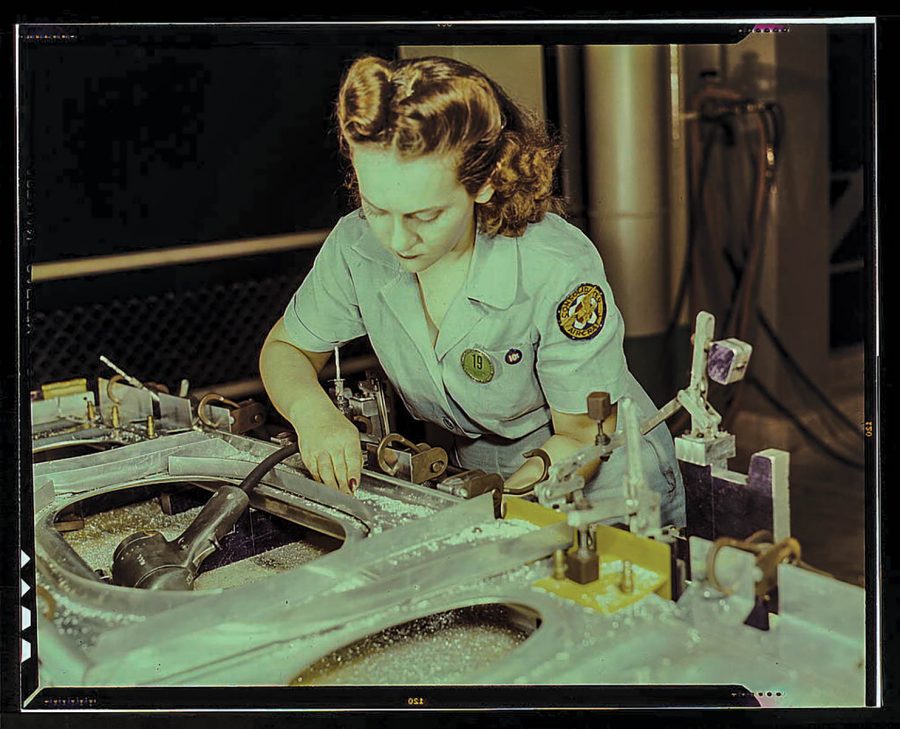Miscarriages in the workplace call pregnancy safety laws into question
The Pregnancy Discrimination Act was established in 1978 and has not been updated since.
In this current political climate, women already have a ton on their plate, and it turns out they have a lot more than we had originally thought. The New York Times released an article last Sunday talking about how multiple women in strenuous jobs miscarried after their employers denied them a lighter workload. This is completely violating all sorts of moral codes, but isn’t actually illegal. Under federal law, pregnant women can be denied lighter work, even if it is available and even if her doctor sends a letter of urgency.
In January of 2014, a woman who had been working tireless hours in a Verizon warehouse in Tennessee with no windows or air-conditioning suffered a miscarriage. After eight hours of heavy lifting, Erica Hayes lost something so precious because of dishonorable labor laws.
Three other women working in the warehouse had previously suffered miscarriages. The company’s contractor has changed since then, but no changes have been made. In fact, two other women miscarried while working there this past summer.
The women have asked for lighter workloads and all the women have been denied. Many of them even brought in notes from their doctors and still, nothing was done. There are currently no laws protecting pregnant women from discrimination at work, aside from the Pregnancy Discrimination Act.
The Pregnancy Discrimination Act was established in 1978. It states, “The terms ‘because of sex’ or ‘on the basis of sex’ include, but are not limited to, because of or on the basis of pregnancy, childbirth or related medical conditions; and women affected by pregnancy, childbirth or related medical conditions shall be treated the same for all employment-related purposes.” This sounds nice and pretty, but what it basically means is that if employers don’t give one person a break, they’re not obligated to give pregnant women one.
After finding out their loyal, hard-working employees are pregnant, employers should be required to carry out a risk assessment. If any risks are identified, employers should alter the work they had planned for said employees. If risk can’t be avoided, pregnant employees should be able to take paid maternal leave.
In 2016, former Indiana Senator Mike Pence signed a law requiring every hospital to bury or cremate every miscarriage. This past May, Governor Rick Scott signed the Grieving Families Act, which requires that Florida issue death certificates to women whose pregnancies end after nine and before 20 weeks. Idaho has a similar law to Florida’s.
If you or someone you know is pregnant while working a highly laborious job, let them know about this ridiculous law and help them stay safe. If they have been discriminated against at work based on their pregnancy, they have the right to file a charge of discrimination with the Equal Employment Opportunity Commission.
In most cases, you have to file a charge within 180 days of the discriminatory action. If they don’t want to take that route, they can also talk to their union representative. Union rules allow them to file a grievance. Unfortunately, even after following all of these steps, nothing might be done. It is important to seek support from friends and family, but also to demand more humane working laws for pregnant women.
There seem to be many laws surrounding what happens after miscarriages, but none to prevent them from happening in the first place. Why must women’s bodies be legislated just so that the far right can make a political point on abortion? Changes must be made.

Hey ya'll! My name is Sammy Jo Cienfuegos and I'm one of the two Viewpoints editors. I'm a senior Writing and Rhetoric major, with an emphasis in Creative...






